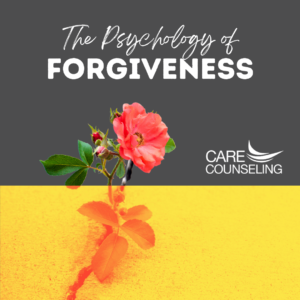The Psychology of Forgiveness

Forgiveness is a profound and transformative act that allows individuals to heal emotional wounds and release the burden of resentment. In the realm of psychology, forgiveness is a multifaceted process that goes beyond merely pardoning someone’s actions. It involves understanding the impact of hurt, embracing empathy, and finding a path toward emotional liberation. Let’s explore the psychology of forgiveness, its healing benefits, and how to cultivate forgiveness in our lives.
- Defining Forgiveness in Psychology
Psychological forgiveness is not about condoning or forgetting hurtful actions; rather, it centers on a conscious decision to let go of negative emotions tied to the hurtful event. It involves choosing understanding, empathy, and compassion over holding onto grudges and resentment.
- The Impact of Unforgiveness on Emotional Well-Being
Unforgiveness can take a toll on one’s emotional well-being, leading to prolonged feelings of anger, bitterness, and anxiety. Holding onto grudges can consume valuable mental and emotional energy, hindering personal growth and preventing the healing process.
- The Healing Power of Forgiveness
Forgiveness can be a powerful source of healing, benefiting both the forgiver and the forgiven. It releases the emotional weight of past hurts and fosters a sense of freedom, enabling individuals to embrace peace and move forward in their lives.
- The Process of Forgiveness
- Acknowledging the Hurt: The first step towards forgiveness is acknowledging the hurt and its impact on emotional well-being. Recognizing the pain and emotions tied to the hurtful event is crucial for the healing process.
- Letting Go of Resentment: Releasing resentment does not mean denying the pain or excusing the actions. Instead, it involves making a conscious choice to free oneself from the emotional burden associated with the hurt.
- Practicing Empathy and Understanding: Cultivating empathy allows individuals to view the situation from the perspective of the person who caused the hurt. This perspective-taking can promote understanding and foster compassion.
- Embracing Self-Compassion: Forgiveness also involves showing compassion towards oneself. Acknowledge that everyone makes mistakes, and self-forgiveness is an essential step towards healing.
- Setting Boundaries: Forgiveness does not always mean reconciling or continuing a relationship with the person who caused the hurt. Setting healthy boundaries is crucial for protecting emotional well-being.
- Benefits of Forgiveness for Mental Health
- Stress Reduction: Letting go of resentment reduces the body’s stress response, leading to lower levels of cortisol, the stress hormone.
- Improved Emotional Regulation: Forgiveness promotes emotional regulation, enabling individuals to respond to triggers more calmly and thoughtfully.
- Enhanced Relationship Satisfaction: In relationships, forgiveness fosters empathy and trust, leading to deeper connections and increased relationship satisfaction.
- Increased Resilience: Embracing forgiveness enhances resilience, allowing individuals to bounce back from emotional challenges more effectively.
- The Challenges of Forgiveness
Forgiveness is not always easy and may be a challenging process for some. Deep-seated hurts, repeated offenses, or betrayal may make forgiveness feel daunting. However, seeking support from a mental health professional or joining a support group can provide valuable guidance and encouragement.
The healing power of forgiveness lies in its ability to reduce stress, improve emotional regulation, and enhance relationship satisfaction. Embracing forgiveness allows individuals to strengthen resilience and cultivate healthier responses to emotional challenges.
As we explore the psychology of forgiveness, let us recognize its profound healing potential. By choosing to forgive, we empower ourselves to release the past, embrace peace, and open the door to a brighter and emotionally liberated future.



























